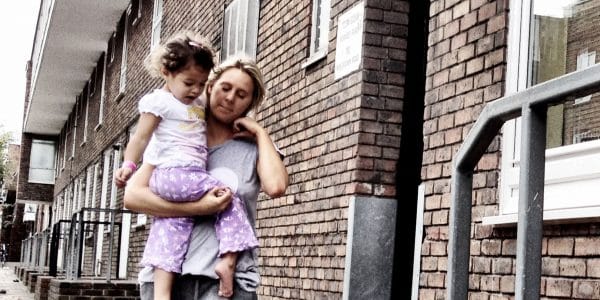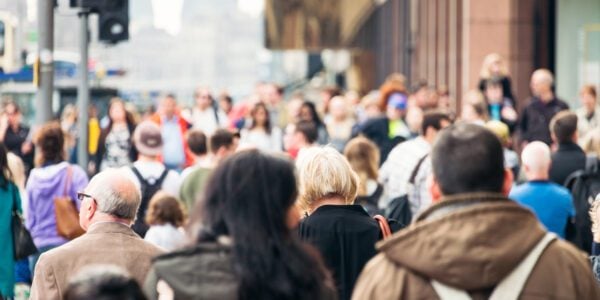
14/05/19
4 min read
Today the IFS formally launches the most comprehensive scientific analysis of inequalities yet attempted.
In a review chaired by Nobel Laureate Professor Sir Angus Deaton and funded by the Nuffield Foundation, the IFS intend not just to describe inequalities – in income, wealth, health, social mobility, political participation and more – but to understand what causes them and to offer concrete policy proposals to tackle them.
The review does not start from the presumption that all inequalities are indefensible; indeed, some are inevitable. But Sir Angus will observe that when the rules of the game are rigged, or when great inequalities in income and wealth result in great inequalities in political power and economic opportunity, then they risk disrupting both our democracy and our prosperity.
“… in much of the rich world, where one or more of politics, economics and health are changing in worrisome ways. If working people are losing out because corporate governance is set up to favour shareholders over workers, or because the decline in unions has favoured capital over labour and is undermining the wages of workers at the expense of shareholders and corporate executives, then we need to change the rules.”
He will point to the risk of the UK following the US, where wages for non-college-educated men have not risen for five decades, and where rising mortality for less-educated white men and women in middle age has caused average life expectancy in America to fall for the last three years – something that has not happened for a century. We have not experienced anything similar in the UK but we have now had a decade of stagnant wages and there is recent evidence that ‘deaths of despair’ – deaths from suicide and drug and alcohol abuse – are now rising among middle-aged Britons. Sir Angus will go on to say:
“I think that people getting rich is a good thing, especially when it brings prosperity to others. But the other kind of getting rich, “taking” rather than “making”, rent-seeking rather than creating, enriching the few at the expense of the many, taking the free out of free markets, is making a mockery of democracy. In that world, inequality and misery are intimate companions.”
Paul Johnson, Director of IFS, said:
“I can’t think of anything more important than understanding what drives the inequalities we see today and working out what we might do to influence them. Everything from early childhood education to the regulation of “big tech”, from the design of the benefit system to the effects of globalisation, from the role of men and women in the home to the design of corporate governance, matters for producing the outcomes we see. We will be examining them all.”
In an accompanying report IFS researchers Robert Joyce and Xiaowei Xu set out a small selection of the key facts about inequality in the UK which have motivated the review:
- Income inequality in the UK is high by international standards. Of other major economies, only the US has higher income inequality.
- Nevertheless, inequality in total net household income has changed little since rising sharply in the 1980s. This is true despite the fact that household earnings inequality has risen.Our system of state transfers – especially tax credits – has been very successful at mitigating rising inequality.
- Deaths from suicide, drug overdoses and alcohol-related liver disease have been rising among middle-aged people in England– similar to (though on a smaller scale than) what has happened in the US since the turn of the century, where the trend has been shown to be concentrated heavily among the lower-educated population. In the UK, this new trend has contributed to a small rise in middle-age mortality overall in the last few years, bringing to an end decades of continual improvement.
- Family environments differ widely and are diverging.The proportion of people on high wages who live with a partner rose between 1994 and 2015, but among people in the bottom fifth of wages it declined by up to 20%. About one in six children in the UK are born to single parents – a phenomenon that is heavily concentrated in low-income and low-educated families, and is significantly less prevalent in continental Europe.
- Women’s employment has risen dramatically from 57% in 1975 to 78% in 2017.But whilst white British women have nearly closed the employment gap with men, Pakistani and Bangladeshi women are half as likely to work as men of the same ethnic group.
- The gender hourly wage gap is strongly associated with childbirth and rises from less than 10% at the point of childbirth to 30% 12 years after the first child is born.This reflects an extraordinary lack of earnings progression for mothers, particularly those who work part-time.
- There are stark geographical inequalities in the UK.Average weekly earnings in London are 66% higher than those in the North East. Men in the most affluent areas can expect to live nearly 10 years longer than those in the most deprived areas, and this gap is widening.
The report also considers some potential causes of current levels of inequality, including the hollowing out of the jobs market and the dramatic decline in union membership, from more than half of employees in 1980 to fewer than a quarter today (with just 13% of private sector employees now in unions). The review will look at these alongside the effects of globalisation, technological change, increased market power for some firms and changing family environments. It will consider a very wide array of policy interventions.
Tim Gardam, Chief Executive of the Nuffield Foundation, said:
“The Deaton Review is a project that sits at the heart of the Nuffield Foundation’s purpose to advance opportunity and social well-being. The multidimensional nature of inequality is among the most contentious issues of our times. It frames the increasingly vehement debate about the distribution of income and wealth and the relationships between this and other inequalities such as gender, ethnicity and disability. It informs the growing anxiety over generational and geographical divisions and is fundamental to our understanding of concepts such as fairness, rights and identity.
“As an independent funder, the Nuffield Foundation believes the dispassionate analysis of evidence and argument that will come from the thinking of the distinguished panel, led by Sir Angus Deaton, has the potential to refashion what we know about inequality and present viable policy options for securing a more emancipated and inclusive society.”
Related project






















































